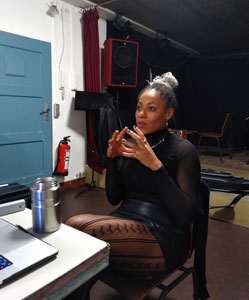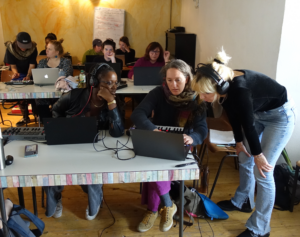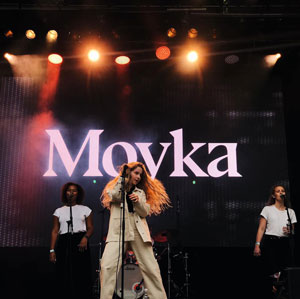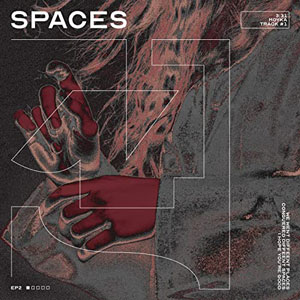 In unserer Songwriting-Gruppe mit der Dozentin Diana Ezerex ging es mit der Übung „Kaltstart“ los. Dabei geht es darum, sofort mit dem Schreiben loszulegen, einfach ohne Ziel die Gedanken des Moments aufzuschreiben und mehrere Minuten lang nicht aufzuhören. So konnten etwaige Hürden und Zweifel gar nicht erst aufkommen. Als nächstes folgte ein Brief an eine Person, in den nach und nach random Wörter eingeflochten werden mussten, die Diana einwarf und die natürlich erstmal nichts mit unserem Text zu tun hatten. Es war erstaunlich, was für stimmige Texte dabei herauskamen! Bei weiteren kreativen Schreibübungen sollten wir uns in einen beliebigen Gegenstand hineinversetzen oder einen Text zu einem Thema schreiben ohne bestimmte Wörter zu benutzen. Dadurch ergaben sich tolle neue Perspektiven und Ideen, wie Songtexte entwickelt werden können. Und es war großartig, dass wir den „Raum“ hatten, uns einmal in Ruhe und mit viel Zeit mit der eigenen Gedanken- und Gefühlswelt zu beschäftigen und daraus Texte zu kreieren. Diana Ezerex hat uns dabei mit viel Humor und Feingefühl begleitet, aber auch die Gruppe war ein toller safe space, wenn beim Schreiben schwierige und intensive Gefühle aufkamen.
In unserer Songwriting-Gruppe mit der Dozentin Diana Ezerex ging es mit der Übung „Kaltstart“ los. Dabei geht es darum, sofort mit dem Schreiben loszulegen, einfach ohne Ziel die Gedanken des Moments aufzuschreiben und mehrere Minuten lang nicht aufzuhören. So konnten etwaige Hürden und Zweifel gar nicht erst aufkommen. Als nächstes folgte ein Brief an eine Person, in den nach und nach random Wörter eingeflochten werden mussten, die Diana einwarf und die natürlich erstmal nichts mit unserem Text zu tun hatten. Es war erstaunlich, was für stimmige Texte dabei herauskamen! Bei weiteren kreativen Schreibübungen sollten wir uns in einen beliebigen Gegenstand hineinversetzen oder einen Text zu einem Thema schreiben ohne bestimmte Wörter zu benutzen. Dadurch ergaben sich tolle neue Perspektiven und Ideen, wie Songtexte entwickelt werden können. Und es war großartig, dass wir den „Raum“ hatten, uns einmal in Ruhe und mit viel Zeit mit der eigenen Gedanken- und Gefühlswelt zu beschäftigen und daraus Texte zu kreieren. Diana Ezerex hat uns dabei mit viel Humor und Feingefühl begleitet, aber auch die Gruppe war ein toller safe space, wenn beim Schreiben schwierige und intensive Gefühle aufkamen.
 Weiter ging es mit Rhythmus-Übungen. Wir sollten Songzeilen in bestimmten Rhythmen schreiben, also mit einer bestimmten Abfolge von langen und kurzen Sequenzen, z.B. lang-kurz-lang oder kurz-kurz-lang – was gar nicht so leicht war… Nach diesen intensiven Schreibphasen kamen wir dann doch noch zur Musik. Diana gab eine Akkordfolge am Klavier vor und wir konnten uns spontan einen passenden Text mit Melodie ausdenken und – wer mochte – vorsingen. Leider reichte die Zeit nicht, um weiter an Musik & Melodien zu arbeiten und da noch mehr Input mitzunehmen. Das wäre dann eine Sache für den nächsten Songwriting-Kurs…
Weiter ging es mit Rhythmus-Übungen. Wir sollten Songzeilen in bestimmten Rhythmen schreiben, also mit einer bestimmten Abfolge von langen und kurzen Sequenzen, z.B. lang-kurz-lang oder kurz-kurz-lang – was gar nicht so leicht war… Nach diesen intensiven Schreibphasen kamen wir dann doch noch zur Musik. Diana gab eine Akkordfolge am Klavier vor und wir konnten uns spontan einen passenden Text mit Melodie ausdenken und – wer mochte – vorsingen. Leider reichte die Zeit nicht, um weiter an Musik & Melodien zu arbeiten und da noch mehr Input mitzunehmen. Das wäre dann eine Sache für den nächsten Songwriting-Kurs…

Bei Music Production mit BAIBA und Little Element wurden am ersten Tag hauptsächlich die Grundlagen von Ableton Live vermittelt. Im Tag-Team haben die beiden Dozentinnen der Gruppe viele Tipps und Tricks weitergeben können und so konnten auch viele Fragestellungen gelöst werden. Jede Teilnehmerin konnte ihre eigene Arbeitsstation einrichten und hatte einen MIDI-Controller zur freien Verfügung. Es wurden verschiedene Möglichkeiten besprochen, um die Grundlage für einen Track zu schaffen, dabei ging es um Timing und die verschiedenen Herangehensweisen, einen Beat oder mehrere in Ableton zu erstellen und zu bearbeiten. Am zweiten Tag ging es nach einer Grundlagenauffrischung schon in die Praxis. Nach der gemeinsamen Einrichtung eines Aufnahmeraums konnte dort nach Lust und Laune gesungen und gesampelt werden. Zum Abschluss des Tages gab es eine Listening Session, bei der gemeinsam die entstandenen Tracks und Lieder gehört und gebührend gefeiert wurden.
 In der gemeinsamen Runde von beiden Workshopgruppen am Sonntagmittag kam die Idee auf, einen Musikerinnen*-Stammtisch/Werkstatt in Frankfurt ins Leben zu rufen. Damit sich Musikerinnen* finden, gemeinsam an Songs arbeiten, sich Skills zeigen und austauschen können. Stay tuned!
In der gemeinsamen Runde von beiden Workshopgruppen am Sonntagmittag kam die Idee auf, einen Musikerinnen*-Stammtisch/Werkstatt in Frankfurt ins Leben zu rufen. Damit sich Musikerinnen* finden, gemeinsam an Songs arbeiten, sich Skills zeigen und austauschen können. Stay tuned!
Vielen lieben Dank an unsere Dozentinnen (Foto: Baiba, Little Element, Diana Ezerex) für Euer Engagment und Herzblut und die grandiosen Workshops, die wir mit Euch erleben durften!



 The central theme of your new songs is the loss of a first love and the energy of a new beginning, a really personal matter. Was ist helpful to write about it to become aware of what’s going on?
The central theme of your new songs is the loss of a first love and the energy of a new beginning, a really personal matter. Was ist helpful to write about it to become aware of what’s going on?